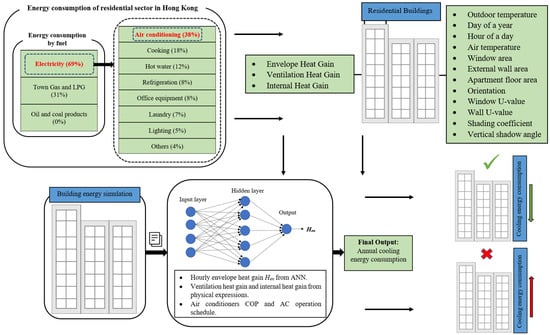A Hybrid Simulation Model to Predict the Cooling Energy Consumption for Residential Housing in Hong Kong
Abstract
Share and Cite
Mui, K.W.; Wong, L.T.; Satheesan, M.K.; Balachandran, A. A Hybrid Simulation Model to Predict the Cooling Energy Consumption for Residential Housing in Hong Kong. Energies 2021, 14, 4850. https://doi.org/10.3390/en14164850
Mui KW, Wong LT, Satheesan MK, Balachandran A. A Hybrid Simulation Model to Predict the Cooling Energy Consumption for Residential Housing in Hong Kong. Energies. 2021; 14(16):4850. https://doi.org/10.3390/en14164850
Chicago/Turabian StyleMui, Kwok Wai, Ling Tim Wong, Manoj Kumar Satheesan, and Anjana Balachandran. 2021. "A Hybrid Simulation Model to Predict the Cooling Energy Consumption for Residential Housing in Hong Kong" Energies 14, no. 16: 4850. https://doi.org/10.3390/en14164850
APA StyleMui, K. W., Wong, L. T., Satheesan, M. K., & Balachandran, A. (2021). A Hybrid Simulation Model to Predict the Cooling Energy Consumption for Residential Housing in Hong Kong. Energies, 14(16), 4850. https://doi.org/10.3390/en14164850








